I left my ID at home and used my phone to prove I can buy beer
Is ID in an app ready for real life?
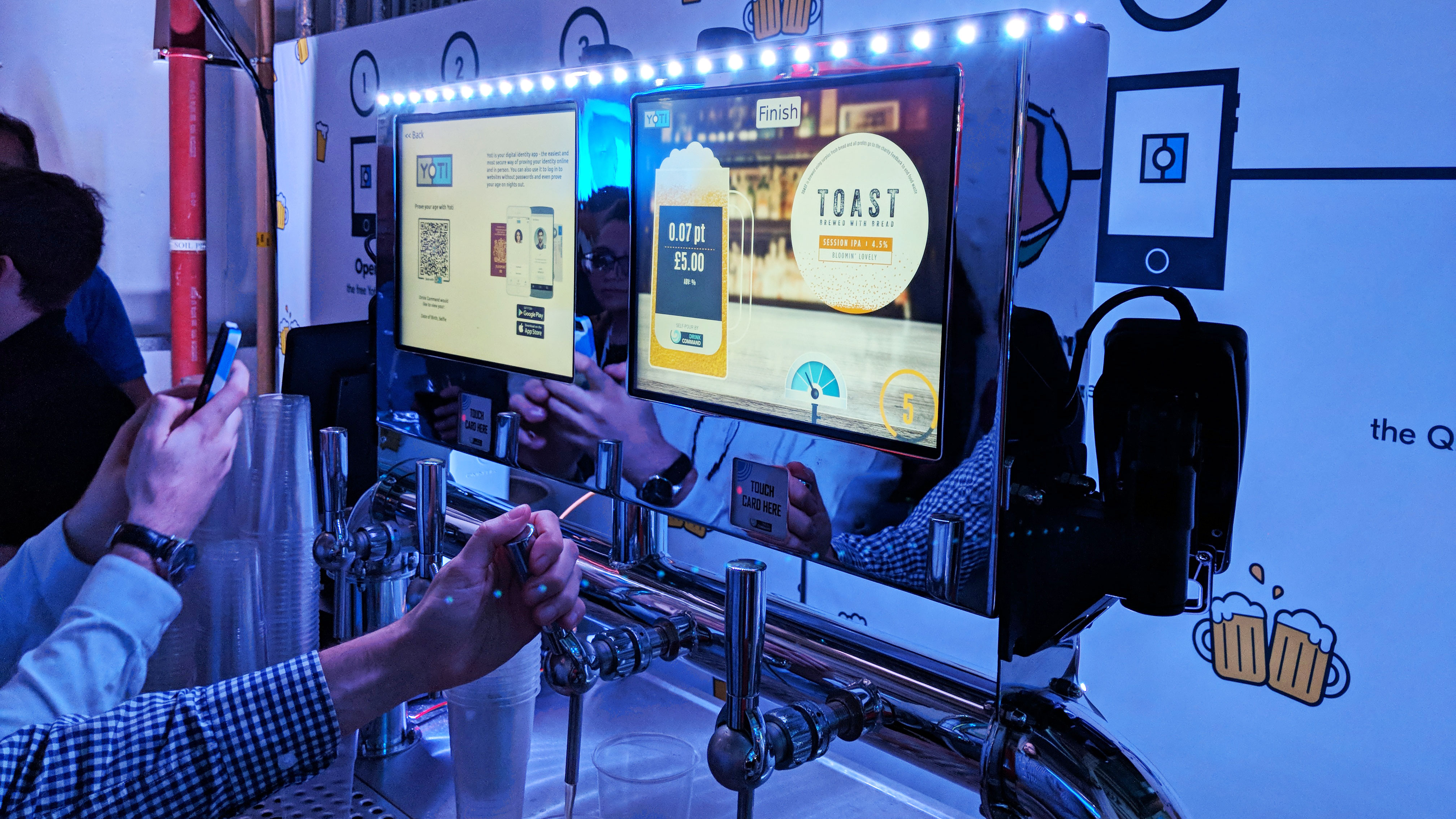
Sign up for breaking news, reviews, opinion, top tech deals, and more.
You are now subscribed
Your newsletter sign-up was successful
I walk up to the bar, but there's not a member of staff in sight. Just a few beer taps, with the levers and nozzles facing me, and some empty glasses.
It's too tempting, so I grab myself a glass, position it under the nozzle and pull the lever down. Nothing. Not even a drop. The screen above the tap tells me I need to verify I'm old enough to drink but there's a problem: no one is here to check my age.
All is not lost. I pull out my smartphone, load the Yoti app and scan the QR code on the display above the beer tap using my handset's camera.
After posing for a quick selfie (at the app's request), the screen above the beer tap declares I am of legal drinking age. I pull the leaver again, and to my delight the beer from a London-based microbrewery flows into my glass.
"This is excellent," I think to myself, "but also way too easy."
Can an app really replace the tried-and-tested method of formal, physical identification?
The team behind Yoti seem to think so.
Sign up for breaking news, reviews, opinion, top tech deals, and more.
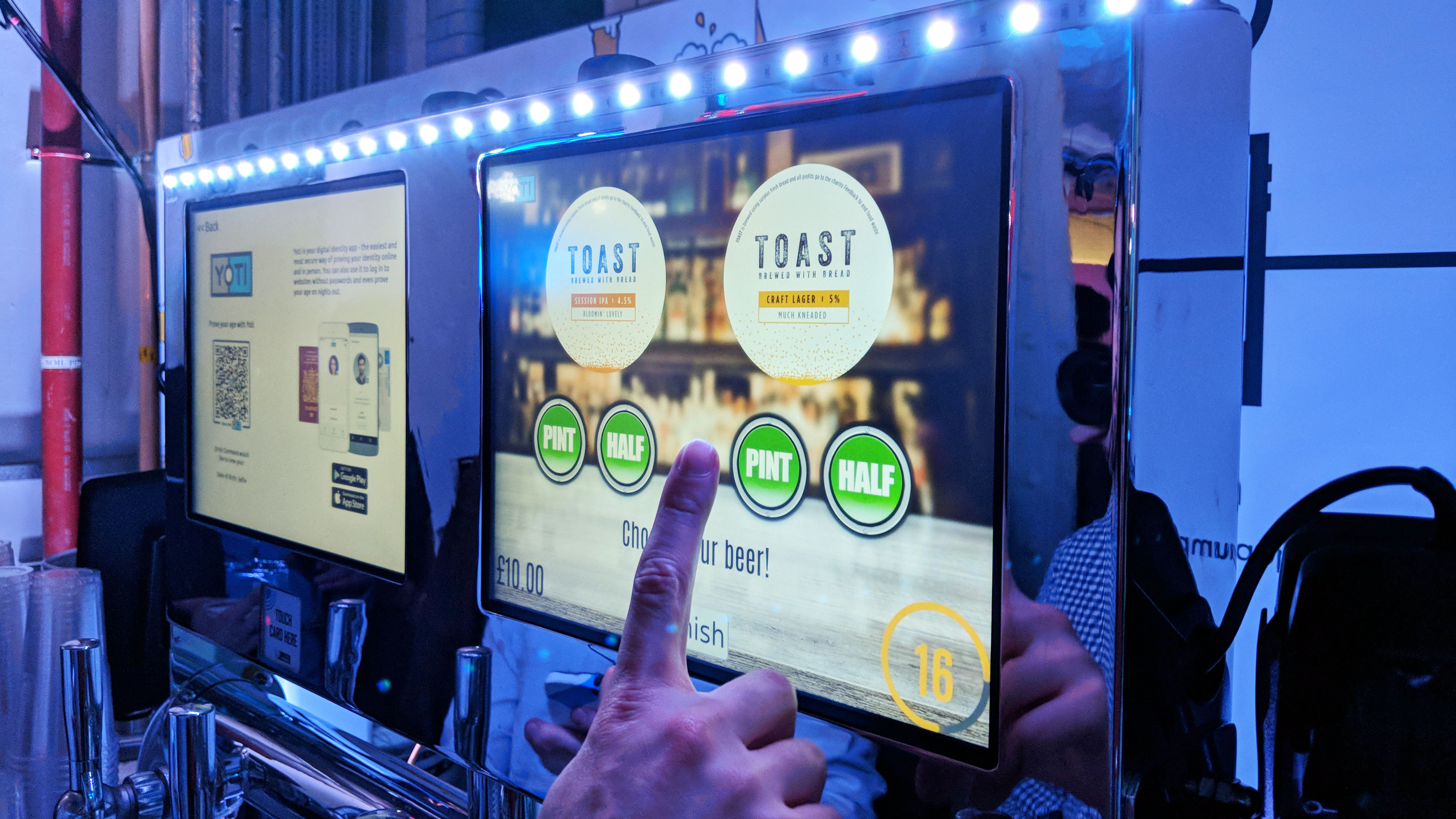
'Online identity is kind of a broken system'
TechRadar sat down with Yoti co-founder, Robin Tombs, who told us why he started Yoti.
"Online identity is kind of a broken system," Tombs explained.
"If I have a bit of knowledge about you, your name, date of birth and address, I can sign you up to a website with a username and password I know, and you have no idea this has happened.
"The website either doesn't check you at all, or it checks a piece of knowledge (name, DOB, address) about you against the electoral roll or a similar system and will assume it's you."
Tombs and his co-founders looked at the system and seeing it hadn't changed significantly in about 25 years, wanted to come up with a trusted solution to fix the problem with verifying people are who they say they are online.
However it was real-world events - such as running meets, where hundreds (if not, thousands) of people turn up to register on the name, be assigned tracking devices and sign injury waivers - which sparked the Yoti team to start really looking into a way of streamlining the process.
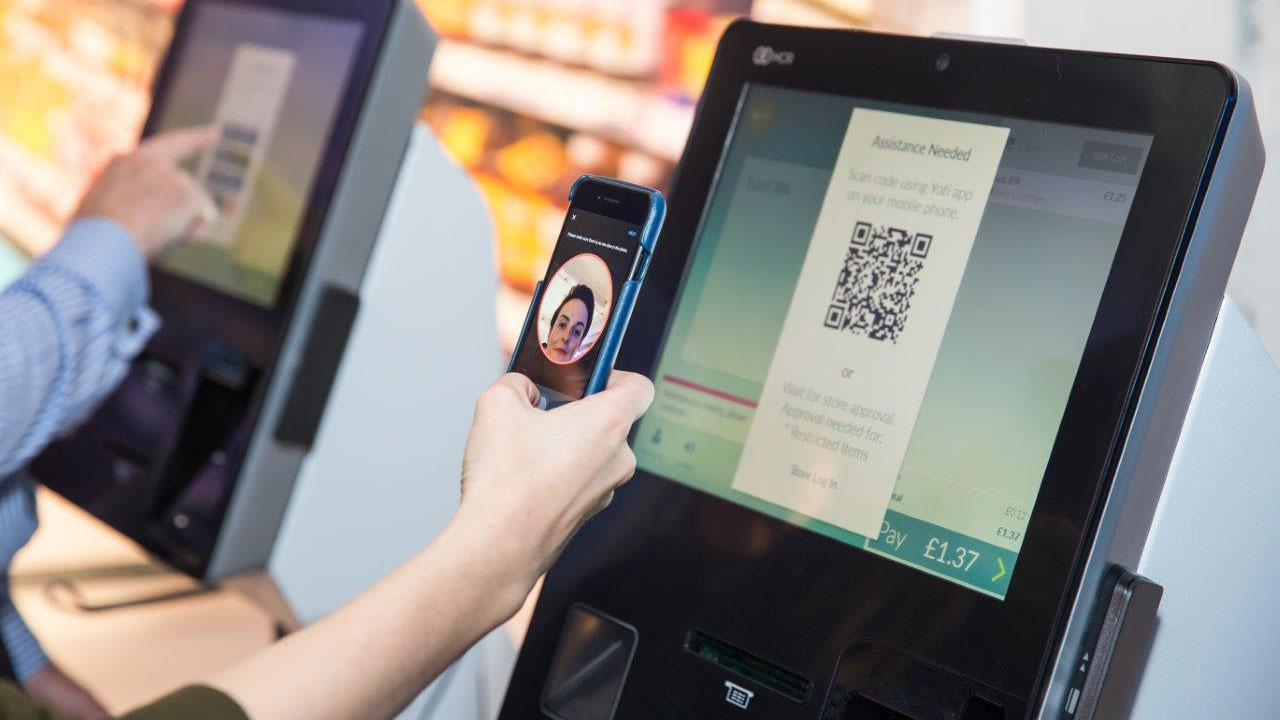
"We asked ourselves, are the smartphones ready? Well they're getting pretty good, biometrics are getting pretty good, let's look into things like passports.
"Once we realized we could read the microchip in a passport, we thought 'right, let's go ahead and start Yoti'."
This was three years ago, and the application has been in beta mode for about nine months with availability in over 100 countries, and it's recently launched a final version on the Apple App Store and Google Play Store.
What it offers is a way of providing verified identification in a wide range of scenarios, from entering a nightclub and buying a drink at the bar, to proving to a self-service checkout you're old enough to purchase a bottle of wine and providing a website with a 100% guarantee you are who you say you are.
Trust is key
The major roadblock for Yoti at the moment is convincing businesses that its service works, and can't be fooled by fraudsters.
Trust is taken very seriously. When you sign up to the app you're asked to provide a selfie, your mobile number (and a text is sent to you with a code to tie the service and your phone together) and a picture of your ID. You'll also need to record a short video within the app which displays a few words on screen for you to say.
Trust is taken very seriously. When you sign up to the app you're asked to provide a selfie, your mobile number (and a text is sent to you with a code to tie the service and your phone together) and a picture of your ID, and you'll need to record a short video within the app which displays a few words on screen for you to say.
Freeads – a classifieds site that allows sellers to verify themselves, giving confidence to buyers
NSPCC/Childline – allowing under 18s to anonymously verify their age, so they can flag malicious and upsetting online content
Deltic – the UK’s leading nightclub operator is using Yoti to verify age on the door
All these parameters are then compared and checked by Yoti's facial recognition software, but also by its own team of 'super recognizers' who work in clean rooms, where the only tech allowed inside is the machine and software that allows them to do their job.
Each person's details are checked by two randomly assigned employees working in the clean room, which stops any risk of collusion. All this makes it very difficult for a bot, or someone pretending to be you, to fool the system.
What Yoti needs to do is convince businesses that its systems are secure, reliable and trustworthy every time - which means the team is meeting with various businesses across the UK.
"Trust is one of the absolute crucial elements… we have to literally go round to the different bars," Tombs explains, "and it's a big hurdle that will take time to gain acceptance.
"It's new, it's different and people will worry the technology may be circumnavigated."
For now, many interested businesses are keeping an eye on Yoti trials to see how the software performs, before committing to the platform.
Currently it's being used by Deltic, the UK's biggest nightclub operator, in two venues in England, while two of the four leading UK supermarkets will also pilot the scheme from early 2018 in two areas of the country.
What's it like to use?
We trialed the service in a number of scenarios, including a self-service supermarket checkout, on the door of a nightclub and at a self-service bar, and Yoti is surprisingly quick and easy.
On all occasions we were required to scan a QR code that is displayed on the checkout display or a doorman’s phone - which the app recognized in a split second. In some instances, such as at the supermarket, the app also required us to snap a quick selfie to prove that it was us using it - rather than a younger sibling or friend trying to chance their luck.
Again, we didn't experience any issues with the selfie stage, even in the low light of the demo area.
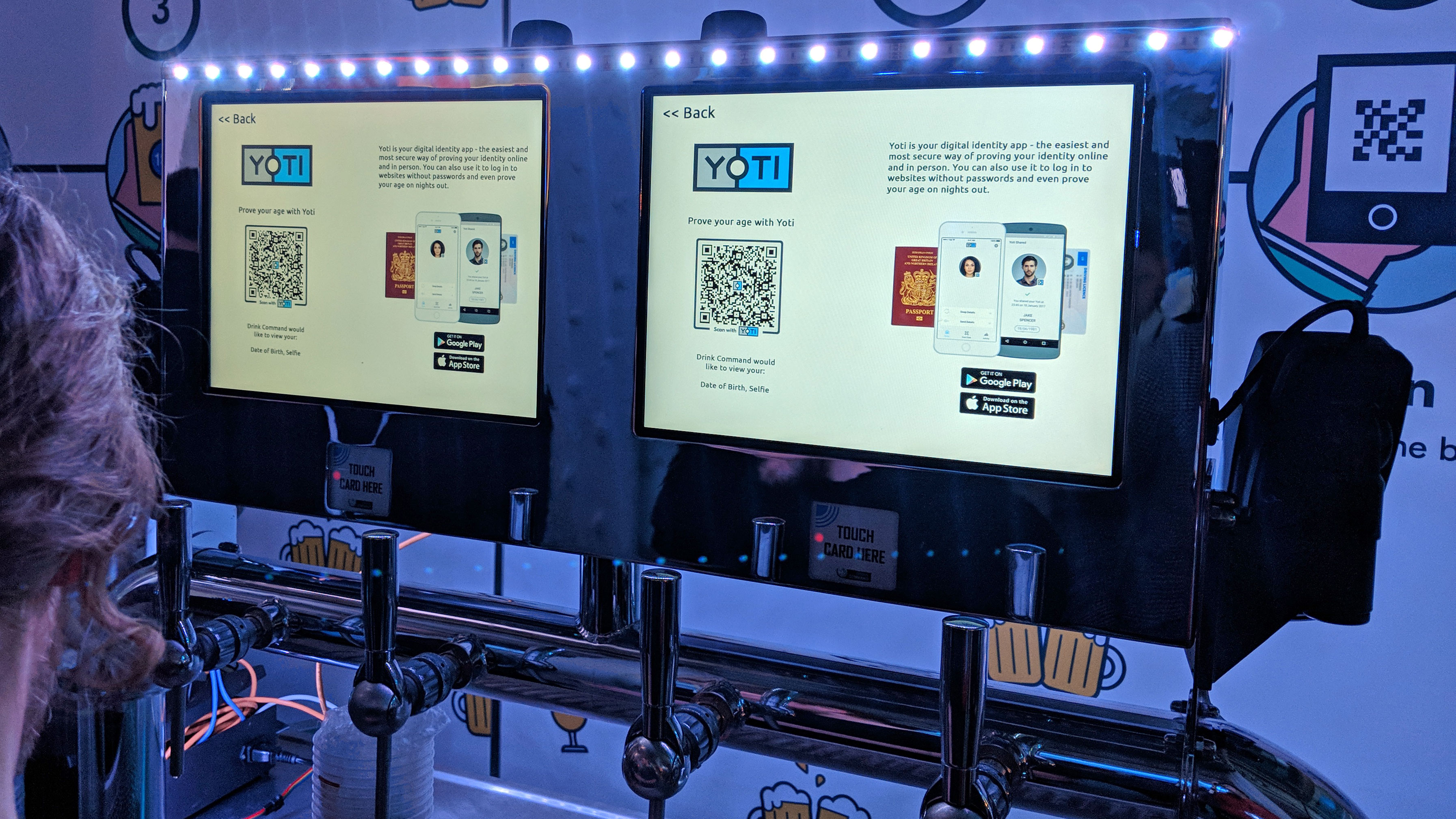
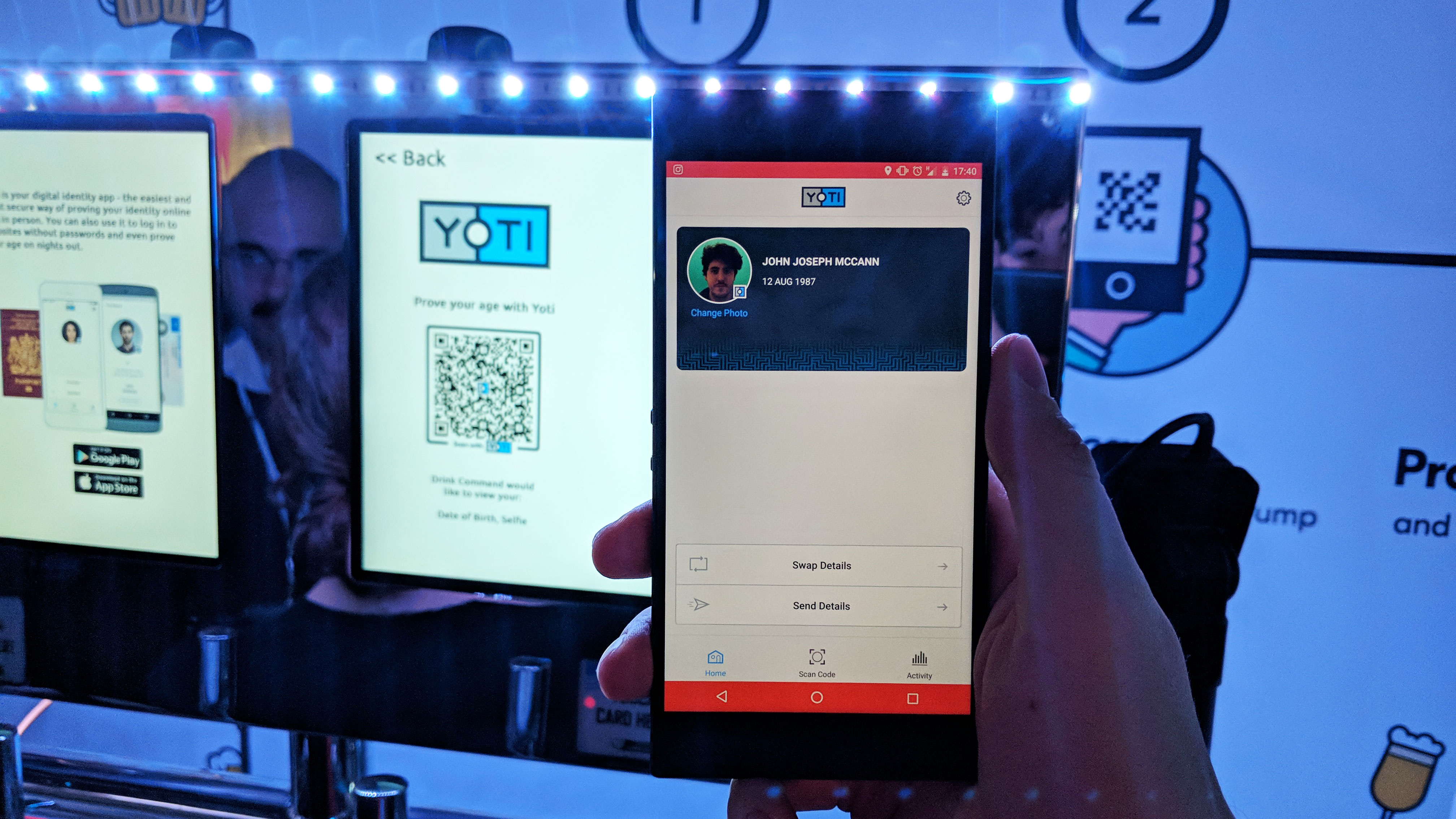
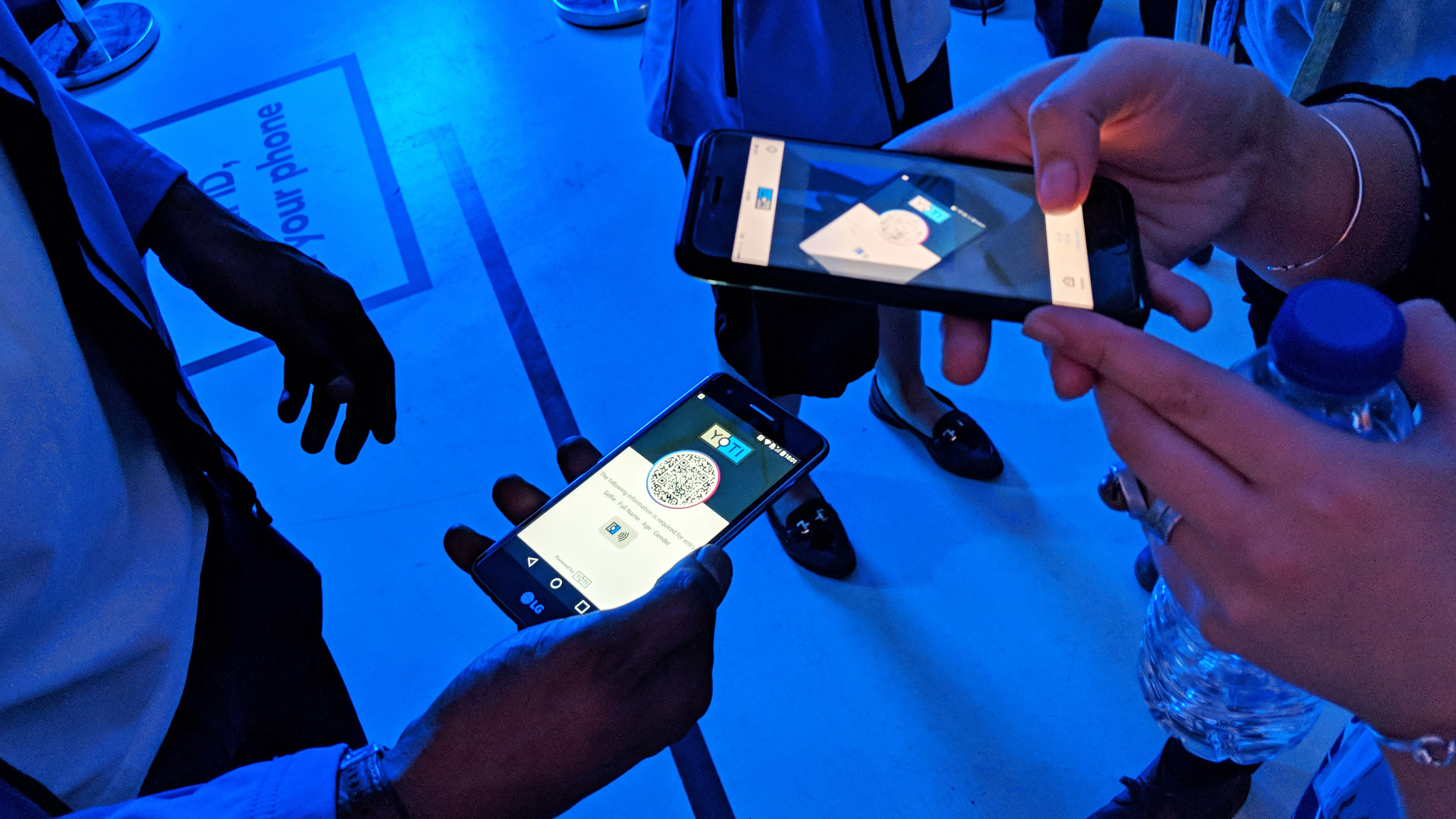
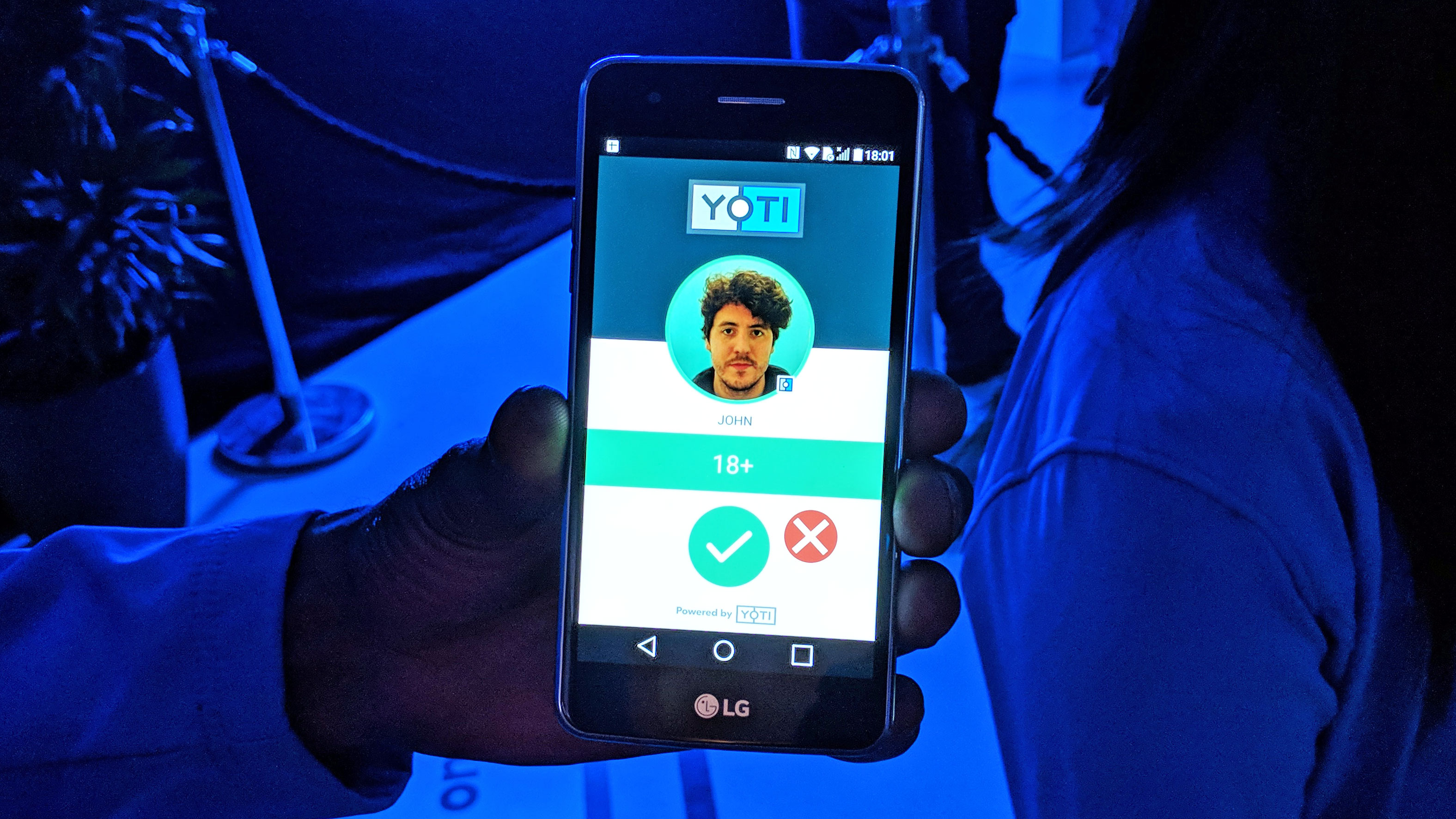
There are still a few teething problems though. First off, every time you load the Yoti app you have to enter you PIN, however a fingerprint option will be made available from early 2018 (assuming your phone has a fingerprint reader) to make the login process more seamless.
Secondly, the app requires an internet connection to work, so if you find yourself in a basement club or a signal black spot in a store you may struggle to use Yoti.
A workaround that's due to arrive in 2018 is the Yoti key. This is a NFC tag you order (and pay a small amount for) from Yoti, with your name, DOB and selfie imprinted onto a plastic tag you can put on a set of keys.
This will allow you to still gain access to nightclubs, even if your phone has run out of power.
Things are still very much in their infancy for Yoti then, but it's a confident step towards having your digital identity on your phone.
Tombs believes that within five to 10 years, most people will have a form of digital identity on their phone. Looking further into the future he hopes it can bring in your driving license, passport, car ownership documents and even title deeds to your home all on your handset.

TechRadar's former Global Managing Editor, John has been a technology journalist for more than a decade, and over the years has built up a vast knowledge of the tech industry. He’s interviewed CEOs from some of the world’s biggest tech firms, visited their HQs, and appeared on live TV and radio, including Sky News, BBC News, BBC World News, Al Jazeera, LBC, and BBC Radio 4.